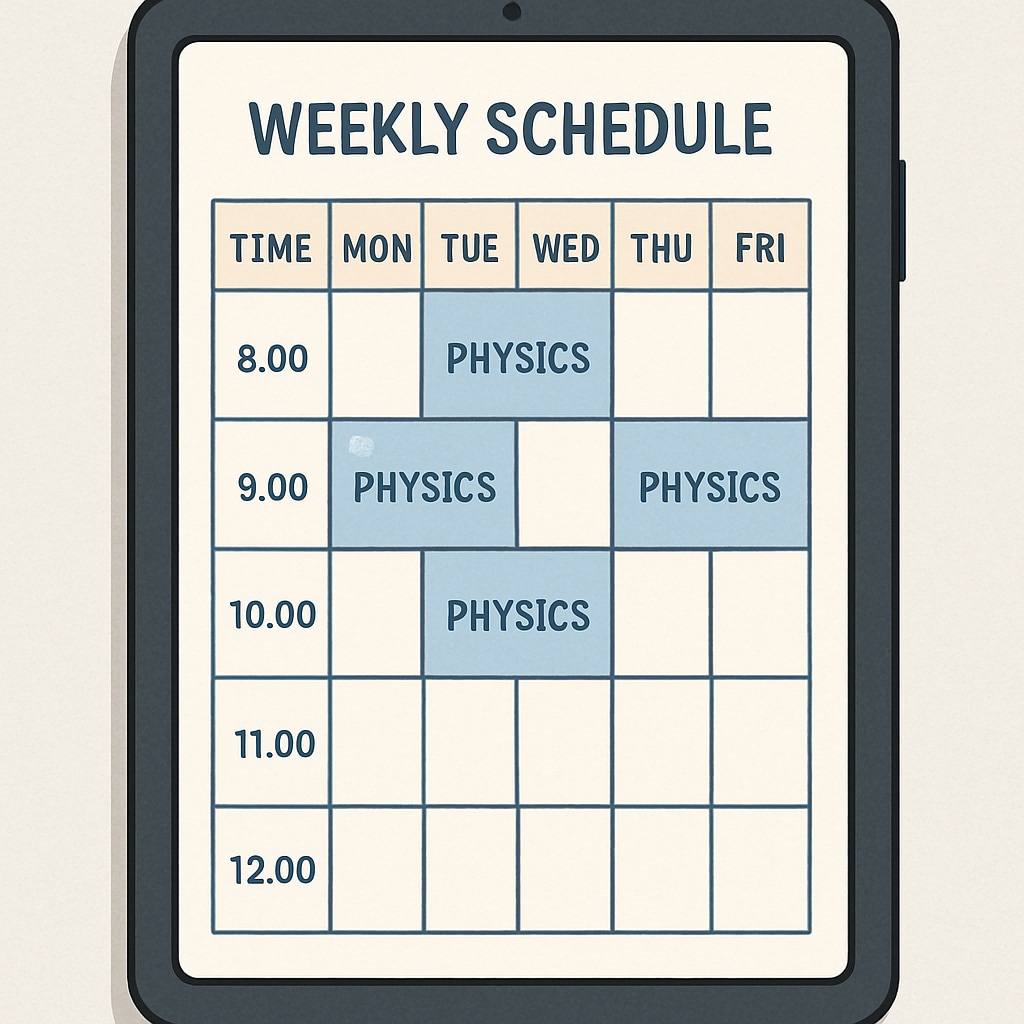For BSc Physics students facing multiple backlogs, effective time management and exam preparation are crucial for academic recovery. Juggling complex subjects like quantum mechanics and thermodynamics while managing personal responsibilities requires a systematic approach. This guide provides actionable strategies to help physics undergraduates overcome academic challenges efficiently.
Prioritizing Physics Backlogs: The Subject Matrix Method
When dealing with multiple pending subjects, strategic prioritization is essential. Create a subject matrix evaluating two key factors:
- Exam proximity (closest deadlines first)
- Conceptual difficulty (hardest topics first)
According to time management principles on Wikipedia, this approach maximizes productivity by focusing on high-impact tasks. For example, tackle mathematical physics backlogs before laboratory courses if exams are scheduled closer.

Effective Study Techniques for Physics Concepts
Physics requires understanding rather than memorization. Implement these research-backed methods:
- Active recall: Test yourself without notes to strengthen memory
- Spaced repetition: Review concepts at increasing intervals
- Problem-solving sessions: Apply theories to practical questions
The Britannica Physics overview emphasizes the importance of conceptual clarity in physical sciences. Dedicate 60-90 minute focused blocks with short breaks for optimal retention.
Time Management Framework for Physics Students
Implement this weekly structure to balance backlogs and current coursework:
| Time Slot | Activity |
|---|---|
| Morning (2hrs) | New concepts/theory |
| Afternoon (1.5hrs) | Problem-solving practice |
| Evening (1hr) | Backlog revision |

Exam Preparation: Physics-Specific Strategies
Physics exams require unique preparation approaches:
- Master derivation techniques for core equations
- Practice dimensional analysis for error checking
- Create formula sheets with application notes
- Simulate exam conditions with timed tests
Remember to allocate 20% of study time to reviewing past mistakes. This targeted approach helps prevent recurring errors in exams.
Implementation tip: Start with your most challenging backlog subject first. Early momentum in difficult areas creates psychological confidence for tackling remaining subjects. Track progress weekly to maintain motivation and adjust strategies as needed.


